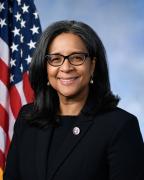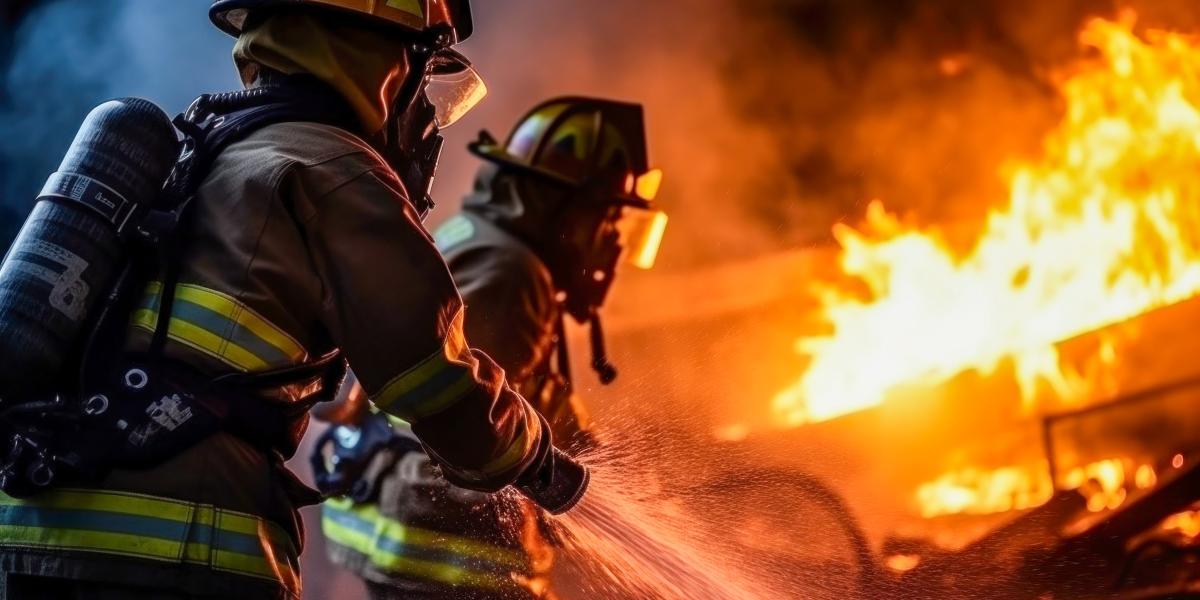
You are here

(Editor's Note: 3E is expanding news coverage to provide customers with insights into topics that enable a safer, more sustainable world by protecting people, safeguarding products, and helping business grow. Q&A features our reporters' exclusive 1:1 interviews with lawmakers and regulatory and industry influencers.)
As more scientific research and scholarship emerges around per- and polyfluoroalkyl substances (PFAS), there has been a heightened emphasis among some regulators and lawmakers to develop safeguards to protect exposed workers and civilians from the health hazards PFAS present.
Rep. Marilyn Strickland (D-Wa.) of Washington’s 10th Congressional District and the former mayor of Tacoma, Wa., has crafted a bill (H.R. 6946) with her colleague Rep. Bill Posey (R-Fl.), which aims to establish a compensation fund for military firefighters exposed to PFAS via aqueous firefighting foam (AFFF). Posey has expressed an interest in mitigating PFAS contamination at least since 2020, including through his support of the PFAS Action Act, introduced by Rep. Debbie Dingell (D-Mi.) in its first iteration in 2021.
If passed, the legislation could significantly impact the regulatory landscape by providing a mechanism for compensating those directly affected by PFAS exposure, thereby setting a precedent for future regulations related to occupational exposure to hazardous substances.
H.R. 6946, introduced on 10 January 2024, would direct the Secretary of Defense to establish the firefighter compensation fund for firefighters employed at a military installation, a National Guard facility, or formerly used Department of Defense (DoD) site exposed to PFAS.
The bill has been referred to the House Armed Services Committee, which is chaired by Mike Rogers (R-Al.). Strickland’s Washington State colleague Adam Smith (D-Wa.) is the ranking member. As of 12 February 2024, the Congressional Budget Office (CBO) had not yet published a cost estimate for this bill.
The bill’s progress and potential impact will be closely watched by stakeholders of various industry groups and activist groups affected by the flurry of U.S. and EU PFAS regulatory developments, including 3E.
Below is a transcript of 3E’s conversation with Strickland who, along with her House colleague Rep. Nancy Murphy (D-N.H.) and Sen. Susan Collins (R-Me.), is one of the most prolific authors of PFAS-related legislation in Congress.
3E: What was the impetus for drafting this bill? How will this bill help to limit the potential hazards of PFAS and why is it necessary now?
Rep. Strickland: Military firefighters put their lives on the line and their health shouldn’t be put at risk by firefighting equipment. Over the last couple of years, we have learned more about the effects of PFAS. It has become overwhelmingly clear that Congress should establish a compensation fund for military firefighters impacted by PFAS exposure.
What are the key provisions in the bill that you believe will have the most impact for firefighters exposed to PFAS? What implications might it have for the ongoing litigation happening in several states related to AFFF?
The key provision is the compensation fund. Military firefighters, most of whom are civilians, are directly exposed to PFAS chemicals while on the job [and] deserve compensation, especially for their work-related illnesses.
What has been the response to H.R. 6946 from your colleagues in Congress? Are there any colleagues who have been particularly supportive or instrumental in crafting or advocating for this bill?
This bipartisan bill has been well received to date. I look forward to working with co-lead U.S. Representative Bill Posey (R-FL) on getting this passed.
What is your confidence level that H.R. 6946 will make it to President Biden's desk, especially in a contentious election year?
I am hopeful that this bill will be signed into law.
Can you describe the extent of PFAS exposure in Washington's 10th congressional district, or in metro areas like Olympia/Seattle/Tacoma more broadly? Are there any examples of constituent feedback or industry support you can cite, particularly from first responders?
The International Association of Fire Fighters and the Environmental Working Group have both expressed their support for this bill. PFAS exposure is an issue in the South Sound and has been flagged for my office by local cities and from people who have worked at McChord Air Force Base.
Have you been in touch with any relevant agency leaders at the U.S. Environmental Protection Agency (EPA) or elsewhere in developing a risk mitigation strategy for PFAS? Have they provided any feedback about best practices or strategies they think would be optimal?
I am consistently in touch with relevant agency leaders to resolve issues like this one.
Are there any other pieces of legislation related to PFAS that you are planning to introduce or recently introduced by other members that you plan to support?
I am always open to good policy suggestions and engaging with relevant stakeholders in and outside of Congress. As of early February 2024, I have no near-term plans for additional legislation related to PFAS.
----------------------------------
(About the author: Stefan Modrich is a Washington, D.C.-based reporter for 3E. He covers the latest developments in environmental health and safety policy and regulation. Modrich previously wrote for S&P Global Market Intelligence, the Arizona Republic, and Chicago Tribune. He is an alumnus of Arizona State University and the University of Zagreb.)

 Top
Top